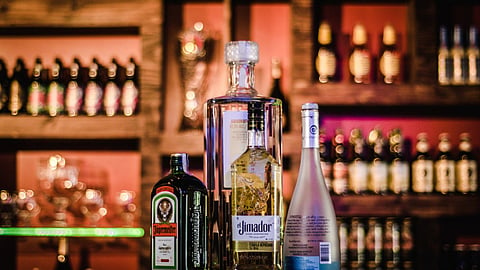

Kerala’s liquor policy is undergoing a quiet but significant shift, with the state cabinet clearing a draft proposal for 2025–26 aimed at making the tourism sector—especially MICE (Meetings, Incentives, Conferences and Exhibitions) tourism—a little more spirited.
One of the most notable changes is the relaxation around dry days, particularly the first day of every month which has long been off-limits for alcohol sales. Under the new policy, hotels with three-star ratings and above that cater specifically to tourists may be allowed to serve liquor even on these dry days—provided they obtain prior permission from the excise commissioner and limit sales strictly to designated special events.
But there’s a catch. Bars attached to these hotels will still remain shut on dry days. So, it’s not a blanket exemption, more like a carefully worded exception.
In another shift, cruise vessels registered with the Kerala Maritime Board and holding IRS classification—a tag given to ships with high safety and quality standards—will now be allowed to serve alcohol. These vessels, essentially floating star hotels, will be eligible for bar licences under the revised rules.
Industry insiders see this as a long-overdue nod to global cruise tourism norms. The idea is to make Kerala waters just as attractive as its hills and backwaters, especially for international travellers expecting a certain standard of leisure.
Kerala’s iconic toddy is also getting a fresh push. For the first time, star-rated hotels and tourism-focussed resorts will be allowed to sell toddy—legally and with proper permits. The government will issue special permits through the excise department. This move is being viewed as an attempt to promote the traditional toddy industry while adding a local flavour to high-end hospitality.
There are still some missing details, though. For instance, the excise department has not yet issued pricing or operational guidelines. A few years ago, hotels were allowed to tap toddy from coconut palms on their own premises, but nobody applied due to practical challenges.
Event management companies have long pointed out that Kerala’s strict liquor laws were prompting major conferences, destination weddings, and MICE events to shift base to neighbouring states with more relaxed policies. Liquor availability, especially on key event dates, had become a deal-breaker.
With the new relaxations, the government seems to be acknowledging that reality. While officials haven’t directly said so, the timing of the policy and its focus areas suggest that Kerala is hoping to regain its competitive edge in event-based tourism.
Despite these updates, the overall concept of dry days hasn’t been scrapped. Bars across the state—including those attached to hotels—will still have to shut shop on designated days unless granted specific exemptions. There’s also no change in the licence fee structure for bar hotels.
In short, the policy tweaks offer flexibility, not a free-for-all.